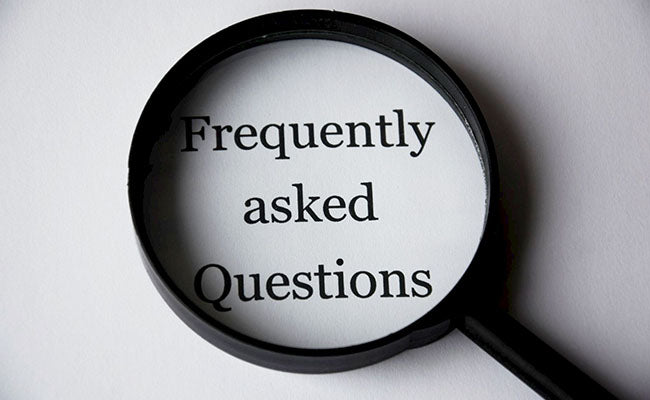The Complete Guide to Wedding Gift Etiquette: What Every Guest Should Know
Wedding season brings joy, celebration, and inevitably, questions about gift-giving etiquette. Whether you're attending your first wedding or your fiftieth, navigating the world of wedding presents can feel overwhelming. Understanding proper wedding gift protocol ensures you honor the happy couple while staying within social norms and your budget.
Do You Need to Bring a Wedding Gift?
The short answer is yes, wedding gifts are expected when you attend a wedding celebration. This tradition stems from the desire to help newlyweds establish their household and start their married life together. However, the specifics of when, what, and how much can vary depending on several factors including your relationship to the couple, regional customs, and your personal circumstances.
Gift-giving serves multiple purposes beyond tradition. It's a tangible way to express your joy for the couple's union and provide practical support as they begin their journey together. Even if you're on a tight budget, a thoughtful, modest gift shows you care about their happiness and future together.
Wedding Gift Timing: When Should You Give Your Present?
Contrary to popular belief, you don't need to bring your wedding gift to the ceremony or reception. In fact, many etiquette experts recommend against it. Transporting gifts can be cumbersome for both you and the couple, who already have enough to manage on their wedding day.
The traditional timeframe for wedding gift giving extends up to one year after the wedding date. However, most guests prefer to send gifts within the first few months after the celebration. Sending your gift to the couple's home 2-6 weeks after the wedding is perfectly acceptable and often more convenient for everyone involved.
If you choose to bring a gift to the wedding venue, ensure it's something small and manageable. Large or fragile items should always be shipped directly to the couple's residence to avoid potential damage or loss during the festivities.
Wedding vs Reception: Where Should Gifts Go?
Whether you're attending the ceremony, reception, or both, the location doesn't change your gift-giving obligations. If you're invited to both events, one gift covers your attendance at all wedding-related celebrations. You're not expected to bring separate gifts for the ceremony and reception.
For destination weddings where you're traveling significant distances, your presence alone is often considered a substantial gift. However, a small token of appreciation is still appropriate, even if it's more modest than what you might give for a local celebration.
Cash, Check, or Physical Gifts: Making the Right Choice
The debate between monetary gifts and physical presents continues to evolve with changing times and preferences. Cash and checks remain popular choices because they offer couples maximum flexibility in how they use their wedding gifts. This is especially true for couples who already have established households or prefer experiential gifts like honeymoon funding.
When giving cash, place it in a card with a personal message and hand it directly to the couple or designated family member. Checks should be made out to one member of the couple (typically using their current legal name) and can be mailed or brought to the wedding in a sealed envelope.
Physical gifts still hold tremendous appeal, particularly items that create lasting memories. Modern couples often appreciate gifts that help them document and share their new life together. Digital picture frames have become increasingly popular wedding gifts because they allow couples to display rotating collections of their favorite photos, from engagement pictures to wedding day memories and beyond.
Registry Guidance and Gift Amount Considerations
Wedding registries exist to guide gift selection and ensure couples receive items they actually want and need. While you're not obligated to purchase exclusively from the registry, it's generally the safest approach for gift selection. Registries also typically include items at various price points, making it easier to find something within your budget.
Gift amounts should reflect your relationship with the couple and your financial situation. Close family members and best friends typically give more generous gifts than distant relatives or work colleagues. A common guideline suggests spending an amount that roughly covers the cost of your meal at the reception, but this shouldn't be a strict rule, especially if you're facing financial constraints.
Personal Experience: Learning Wedding Gift Lessons
I learned valuable lessons about wedding gift etiquette when attending my college roommate's wedding several years ago. Initially, I planned to bring an elaborate home decor piece to the ceremony, thinking it would show how much I cared. However, after speaking with other experienced wedding guests, I realized this approach would likely create more stress than joy.
Instead, I chose a digital photo frame that I could easily ship to their new home. This decision proved perfect – they later told me how much they loved being able to display rotating photos from their engagement, wedding, and honeymoon all in one beautiful frame. The gift became a centerpiece in their living room, constantly reminding them of their special day and the friends who celebrated with them.
This experience taught me that thoughtful, practical gifts often mean more than expensive, elaborate ones. The key is choosing something that fits the couple's lifestyle and brings them ongoing joy.
Special Circumstances and Modern Considerations
Today's wedding landscape includes many non-traditional elements that can affect gift-giving protocols. Second marriages, elopements, and casual ceremonies may have different expectations. For second marriages, couples often prefer monetary gifts or charitable donations rather than household items they may already possess.
Virtual or livestreamed weddings, which became common during recent years, still warrant gifts even if you're not physically present. The same general rules apply – send your gift within a few months of the ceremony to the couple's home address.
If you're unable to attend a wedding after initially accepting the invitation, you're still expected to send a gift. Your absence doesn't eliminate the gift-giving obligation, though you might choose to give something more modest than if you had attended.
Presentation and Packaging Matters
How you present your wedding gift matters almost as much as the gift itself. Beautiful wrapping, elegant gift bags, or professional packaging shows you've put thought and care into your present. Include a heartfelt card with a personal message congratulating the couple and expressing your best wishes for their marriage.
For shipped gifts, consider including a note explaining when and why you selected the particular item. This personal touch helps the couple understand your thought process and creates a stronger emotional connection to the gift.
Final Thoughts on Wedding Gift Etiquette
Wedding gift giving shouldn't cause stress or financial strain. The most important aspects are showing your support for the couple's union and giving within your means. Whether you choose cash, a registry item, or something uniquely personal like a digital picture frame that will help preserve their memories, your thoughtfulness will be appreciated.
Remember that wedding gifts are about celebrating love and supporting the couple as they begin their married life. Focus on finding something meaningful rather than expensive, and present it with genuine warmth and best wishes. Following these guidelines ensures you'll navigate wedding gift etiquette with confidence and grace, making the experience positive for both you and the happy couple.




